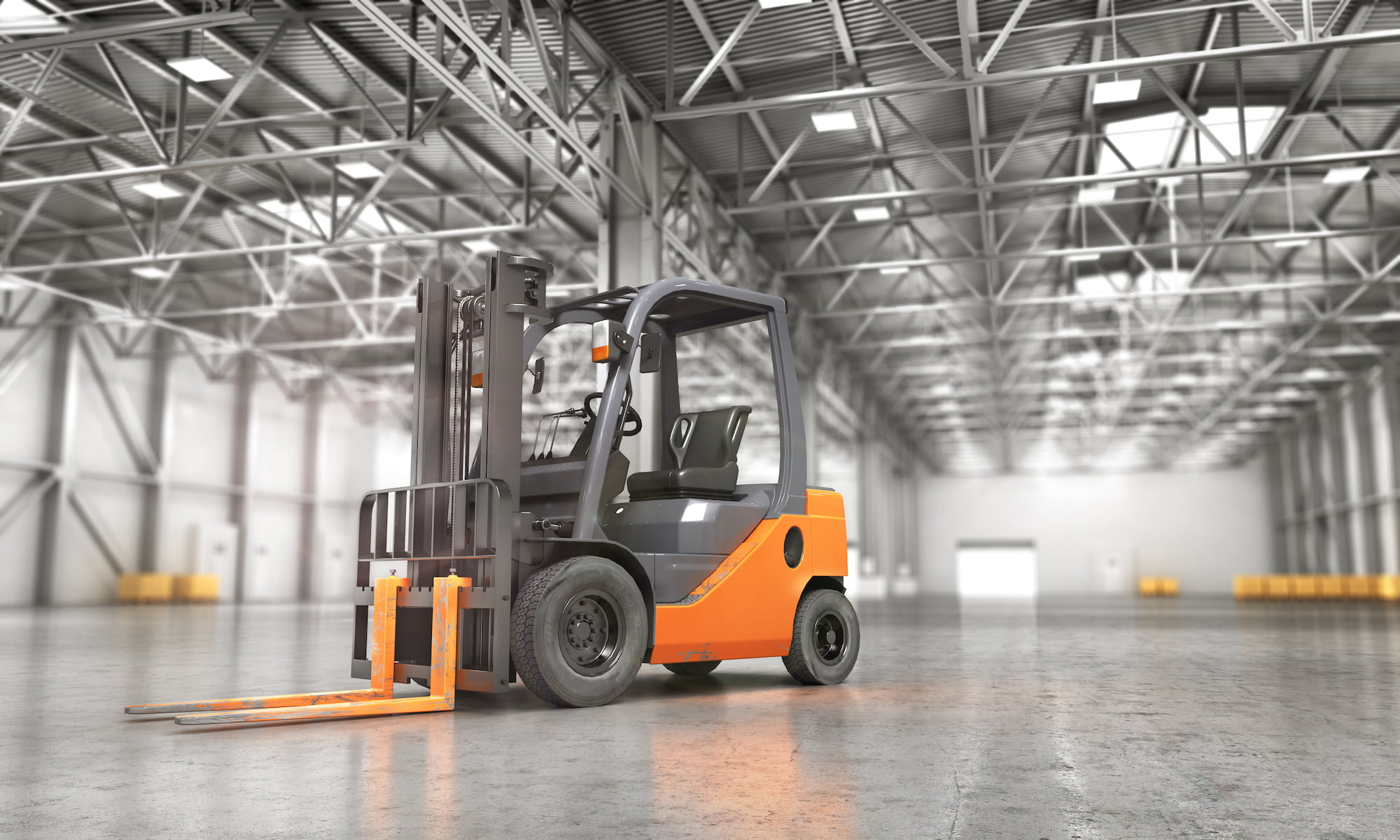Business
Unlocking Operational Flexibility with Forklift Rentals
Published
2 months agoon
By
Prime Star
In the world of logistics, warehousing, construction, and manufacturing, material handling equipment is essential to daily operations. Among these machines, forklifts stand out as vital tools for lifting, transporting, and stacking heavy loads efficiently. However, owning forklifts outright is not always the most economical or practical choice for businesses, especially when demand fluctuates or projects are temporary. This is where forklift rentals come into the spotlight, offering flexibility, cost-effectiveness, and convenience that can transform how companies manage their equipment needs.
The Growing Importance of Forklift Rentals
Forklifts are indispensable for moving heavy pallets, containers, and materials, but purchasing these machines can be a significant capital expense. The investment involves not only the upfront cost but also ongoing expenses such as maintenance, insurance, storage, and operator training. For many businesses, especially those with seasonal workloads or short-term projects, forklift rentals provide an ideal alternative.
Renting forklifts allows companies to access the right equipment exactly when needed, without the long-term commitment and overhead associated with ownership. Whether it’s for a few days, several weeks, or months, rentals can be tailored to fit the project timeline and budget, enabling greater operational agility.
Key Advantages of Forklift Rentals
1. Financial Flexibility and Reduced Capital Expenditure
Forklift ownership requires significant upfront capital investment, which can strain cash flow. By opting for forklift rentals, companies convert a large capital expense into manageable operating costs. This preserves working capital that can be redirected towards other critical areas such as workforce development, technology upgrades, or facility improvements.
2. Access to Latest Models and Technology
Rental fleets are frequently updated to include the latest forklift models equipped with modern safety features, improved fuel efficiency, and enhanced ergonomics. Renting ensures access to this cutting-edge equipment without the risks associated with rapid technological obsolescence or expensive upgrades.
3. Maintenance and Service Included
One of the hidden costs of forklift ownership is ongoing maintenance and repairs. When using forklift rentals, these responsibilities usually shift to the rental provider. Regular maintenance, inspections, and emergency repairs are often covered under rental agreements, reducing downtime and unexpected expenses for the user.
4. Scalability and Operational Efficiency
Business demand can be unpredictable. Projects may expand, contracts may be won or lost, and seasonal peaks can drastically affect equipment requirements. Forklift rentals allow businesses to scale their fleet size up or down quickly, ensuring that they have exactly the equipment needed to meet current demand without surplus.
5. Simplified Logistics and Storage
Idle forklifts take up valuable floor space and require secure storage, adding to overhead costs. Rental equipment is delivered as needed and picked up when the job is done, freeing space and reducing management hassles.
Common Types of Forklifts Available for Rental
Rental companies typically offer a broad range of forklift types to suit diverse operational needs:
- Counterbalanced Forklifts: The most common type, ideal for general-purpose lifting and transportation of pallets and heavy goods.
- Reach Trucks: Designed for narrow aisles and high stacking in warehouses.
- Telehandlers: Equipped for rugged outdoor terrain and extended reach tasks.
- Order Pickers: Specialized for picking inventory at various heights.
- Electric Pallet Jacks: For maneuvering lighter loads efficiently in confined spaces.
Choosing the right forklift type for your specific application maximizes productivity and safety.
Important Considerations When Renting Forklifts
Rental Duration and Terms
Rental agreements vary widely from daily rentals to long-term contracts. Companies should assess their project timelines carefully to choose rental terms that optimize cost and flexibility.
Equipment Specifications
Understanding the load capacity, lift height, power source (electric, diesel, propane), and operating environment is crucial to selecting the proper forklift. Mismatched equipment can cause inefficiency or safety hazards.
Vendor Reputation and Support
A reputable rental provider offers reliable machines, timely delivery, and responsive service support. Evaluating vendor reviews, fleet condition, and maintenance capabilities ensures smooth operations.
Operator Training and Certification
Some rental companies provide operator training or require confirmation of certified operators to reduce risk and enhance safety.
Cost Implications of Forklift Rentals
While the rental fee itself is straightforward, businesses should consider the total cost of renting, including:
- Delivery and pick-up charges
- Fuel or battery charging policies
- Insurance requirements
- Damage liability or overuse fees
By comparing these factors with the total cost of ownership, companies can make informed financial decisions.
How to Maximize Benefits from Forklift Rentals
- Plan Ahead: Booking equipment early during peak periods ensures availability and better rates.
- Match Equipment to Task: Avoid renting oversized or undersized forklifts which could increase costs or reduce efficiency.
- Maintain Equipment Properly: Even rented forklifts require daily checks and care to prevent damage and downtime.
- Leverage Vendor Expertise: Rental companies can advise on the most suitable equipment and provide technical support.
- Monitor Usage: Track hours and performance to avoid unexpected charges.
Forklift Rentals as a Strategic Business Tool
Beyond short-term operational needs, forklift rentals can serve strategic business functions:
- Trial Before Purchase: Renting allows businesses to test specific models or technologies before committing capital to purchase.
- Support for Expansion or Special Projects: When launching new facilities or seasonal campaigns, rentals provide flexible capacity.
- Disaster Recovery and Contingency Planning: Rentals offer quick access to equipment during emergencies or unexpected demand surges.
- Cost Management in Uncertain Markets: In volatile economic climates, rentals help avoid fixed asset risk.
The Environmental Impact of Renting Forklifts
Many rental providers now offer eco-friendly options such as electric forklifts or machines with low emissions. Renting these greener alternatives helps businesses reduce their carbon footprint without the upfront investment.
Conclusion
Incorporating forklift rentals into your equipment management strategy unlocks significant operational and financial benefits. This approach enables businesses to respond swiftly to changing demands, reduce capital expenditures, and maintain access to modern, well-maintained equipment. From short-term projects to long-term scalability needs, forklift rentals provide the flexibility and support that drive efficiency and competitiveness in today’s fast-paced industrial environment.
By choosing the right rental partner, understanding the nuances of rental agreements, and aligning equipment choices with operational goals, companies can harness the full potential of forklift rentals to propel their business forward efficiently and safely.

How GEO Helps Startups Compete With Enterprise-Level AI Visibility

Who Is Cassandra Marino? Caitlyn Jenner’s Daughter Who Lives a Private Life

Get to Know Nathan Andersen: A. J. Cook’s Husband and Proud Family Man

From Digital to Tangible: The Human Impact of Cryptocurrency to Fiat Adoption

The Real Story of Melissa Meeks, Jeremy Meeks’ Famous Ex-Wife

MegaCustom: Personal Gifts Made Beautiful

Design Something Special with MegaCustom

Top 10 SEO Agencies for Barber Shops

The Secret to Choosing Colours That Truly Work with Your Flooring

Why Vietnam Became the Traveler’s Favorite Destination

Who Is Marlene Knaus? The Untold Story of Niki Lauda’s First Wife

Curious About JOI Database? Read This First Before You Click Anything

Jacqueline Bernice Mitchell: The Inspiring Story of Jerry Rice’s Ex-Wife

Should You Use Wooflix in 2025? Honest Review and Best Alternatives

Where Is Noelle Watters Now? Jesse Watters’ Ex-Wife’s Life After Divorce

Where Is Barbara Boothe Now? Inside Her Life After Larry Ellison

Alisande Ullman Today: What Happened After Her Divorce from Leslie Nielsen?

Where Is Tanya Hijazi Now?: All About Rick James’ Former Wife

Wendy Lang: Meet the Therapist Married to Cenk Uygur

Mickey Middleton: The Untold Story of Bryan Cranston’s First Wife

How GEO Helps Startups Compete With Enterprise-Level AI Visibility

Who Is Cassandra Marino? Caitlyn Jenner’s Daughter Who Lives a Private Life

Get to Know Nathan Andersen: A. J. Cook’s Husband and Proud Family Man

From Digital to Tangible: The Human Impact of Cryptocurrency to Fiat Adoption

The Real Story of Melissa Meeks, Jeremy Meeks’ Famous Ex-Wife

MegaCustom: Personal Gifts Made Beautiful

Design Something Special with MegaCustom

Top 10 SEO Agencies for Barber Shops

The Secret to Choosing Colours That Truly Work with Your Flooring

Why Vietnam Became the Traveler’s Favorite Destination
Categories
Trending
-

 Celebrity6 months ago
Celebrity6 months agoWho Is Marlene Knaus? The Untold Story of Niki Lauda’s First Wife
-

 Entertainment5 months ago
Entertainment5 months agoCurious About JOI Database? Read This First Before You Click Anything
-

 Celebrity3 months ago
Celebrity3 months agoJacqueline Bernice Mitchell: The Inspiring Story of Jerry Rice’s Ex-Wife
-

 Entertainment5 months ago
Entertainment5 months agoShould You Use Wooflix in 2025? Honest Review and Best Alternatives
